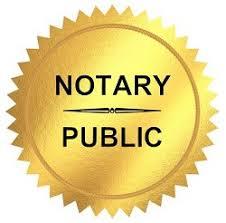Experienced Conveyancer: Helping With Smooth Realty Deals
Experienced Conveyancer: Helping With Smooth Realty Deals
Blog Article
Demystifying Notarial Work: Streamlining the Function and Significance of Notaries
In the detailed web of legal documents and verification, notaries stand as pillars of guarantee and authenticity. Their role, often shrouded in secret for many, carries considerable weight in making certain the validity and integrity of important papers. As guardians of legitimacy and fact, notaries play a crucial component in our culture, yet their job is not constantly totally recognized. By untangling the intricacies surrounding notarial techniques and dropping light on the value of their acts, a more clear understanding emerges of the important role notaries play in supporting the fabric of legal and lawful arrangements.
The History of Notarial Work
The history of notarial work days back to old worlds, where scribes played a crucial function in taping crucial information and verifying papers. This led to the advancement of notaries, people appointed by the state to act as neutral witnesses in legal matters.
During the Center Ages, notaries obtained prominence in Europe, with their functions broadening to consist of composing legal files, accrediting trademarks, and maintaining records. The rise of worldwide profession additionally stressed the importance of notarial work in confirming agreements and arrangements throughout boundaries.
In the modern-day period, notaries remain to play a vital function in legal and company deals by confirming identifications, validating the credibility of records, and avoiding fraudulence. Their duty in licensing the validity of agreements adds a layer of safety and depend on to the ever-evolving landscape of business and regulation.

Obligations and Duties of Notaries
The historic development of notarial work from old people to the modern-day period has actually shaped the distinct duties and obligations that notaries maintain in lawful and business deals today. Notaries play an important role in validating the credibility of documents and the identification of notaries. Among their main responsibilities is to witness the finalizing of essential documents, such as wills, contracts, and acts, to guarantee that all parties are participating in arrangements knowingly and willingly. Notaries additionally verify that signatures are of sound mind and not under discomfort or browbeating.
Additionally, notaries are charged with administering affirmations and vows, which are crucial in legal procedures and the implementation of testimonies. They certify copies of original files, supplying guarantee to establishments that the copies hold true replicas of the originals. Notaries need to preserve exact documents of all purchases they look after to ensure transparency and accountability. In general, the responsibilities and duties of notaries are necessary in safeguarding the integrity and legality of various files and deals.
Notarial Certificates and Signatures
Exhibiting careful interest to detail, notarial Clicking Here certificates and trademarks function as crucial components in confirming the credibility of legal papers. Notarial certifications generally have essential information such as the day of registration, the names of the signatures, a description home of the file, and the notary's official seal. These certificates give a clear record of the notarial act, guaranteeing that the document can be conveniently determined and mapped back to the notary that supervised the procedure.
Trademarks play a pivotal duty in notarial work, as they signify the arrangement and permission of the events included. Notaries carefully witness the finalizing of documents to validate the identity of the notaries and confirm that they are authorizing of their very own free choice. By affixing their main seal and signature to the paper, notaries certify that the needed treatments have actually been complied with which the paper is valid and enforceable.
Basically, notarial certificates and signatures are the characteristic of credibility in legal purchases, offering guarantee to all parties included that the documents are genuine and binding.
Relevance of Notarial Acts

Notarization Refine Clarified
Describing the notarization process supplies clearness on the crucial steps involved in confirming legal papers. The registration procedure commonly starts with the specific providing the paper to a notary public. The notary after that confirms the signer's identity via appropriate recognition techniques. Once the identity is verified, the notary makes sure that the private signing the file does so willingly and without any threat.

Verdict

Notarial certificates typically include essential details such as the day of notarization, the names of the notaries, a summary of the paper, and the notary's main seal. These certifications provide a clear record of the notarial act, making sure that the record can be conveniently identified and traced back to the notary who supervised the procedure.
By fastening their main seal and trademark to the document, notaries certify that the required procedures have been complied with and that the file is legitimate and enforceable.
By confirming the identification of the notaries, verifying their desire to get in into the contract, and accrediting the date and location of the signing, notaries play an important function in maintaining the credibility of legal documents.After the document is authorized, the notary will certainly fasten their official seal or stamp onto the paper.
Report this page